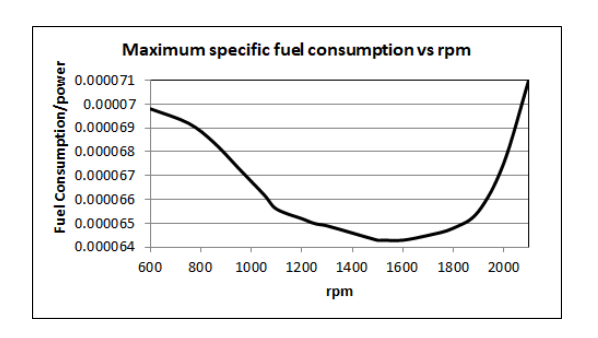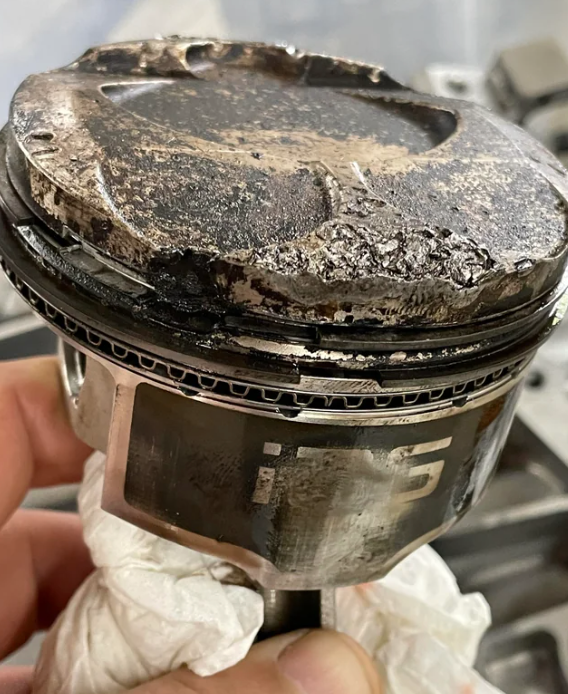Is Revving Your Car Bad? (Yes, Don’t Do It Too Much!)
Revving the engine of your car for long periods can lead to serious issues. Car engines ca overheat and become damaged when pushed too hard. Signs that your engine has been over-revved and is in distress include: poor performance and acceleration, knocking or pinging noises, higher than normal operating temperatures and reduced fuel mileage. The violent motion and forces placed on engine components during extended high RPM operation can also cause premature wear of pistons, rings, bearings and other critical parts. To keep your engine happy, drive smoothly without aggressive starts, stops or excessive RPMs. Also be diligent about routine oil changes and tune-ups as recommended in your owner’s manual.
Many drivers enjoy revving their engines, feeling the roar and power under the hood. But is this thrilling habit actually damaging your car?
In this guide, we’ll look at how revving too much can prematurely wear out components and reduce engine life. Yet moderation may not be entirely harmful. We’ll discuss best practices so you can responsibly enjoy your ride.
- Revving your car engine can damage components and cause overheating, poor performance, low fuel economy, and noise. Avoid revving too much.
- Loud noise when revving is from faster exhaust gases and mechanical components rotating at high speeds.
- Revving before the engine warms up causes wear since oil viscosity isn’t optimal yet for lubrication.
- Revving shoots RPMs up fast, burning more fuel. Use top gears and optimal RPM range for best efficiency.
- Occasional quick revs during brisk acceleration or merging are fine. Keep RPMs between 2000-3500 for good fuel economy.
Revving A Car Engine: What Does It Mean?
Revving your car means that you are pushing the accelerator pedal all the way and trying to get the maximum power and speed from your engine, when the car is in park or neutral.
The term ‘Rev’ is a short form of ‘Revolution’. The crankshaft revolution increases as we push the accelerator/gas pedal. As we push the gas pedal, more air is allowed to enter the engine.
When the ECU detects more air in the engine, it will send signals to the fuel injector to inject more fuel. As a result, more energy and heat will be produced when the air/fuel mixture will burn.
When the engine is revved, the RPM goes up. This means the engine is producing more power. But revving a car engine for longer periods can cause wear and tear on internal components. As a result, your engine may start making loud noises.
Car idling noise is the sound of your engine. It may start at low speeds and gradually get louder as you rev up the engine. Revving up the car also puts engine fluids, such as transmission oil, motor oil, and coolant under high pressure.
Read my guide on how far can you drive a car on minimum engine oil for more details.
Why Does Engine Make Loud Noises When You Rev Your Car?
When you hit the gas pedal and rev up your engine, two main things cause your car to get loud. First, the exhaust gases start moving crazy fast through the exhaust pipes. This speedy gas flow makes lots of noise on its way out.
Second, the engine’s own parts like bearings and gears start spinning super quick. The faster these pieces spin, the louder their mechanical noise gets too.
So both the ripping exhaust gas and the engine’s own working parts team up to make that roar when you stomp on the gas.
An older engine with worn pieces tends to be naturally louder since the parts don’t spin as smooth as they used to. But even a brand new sports car gets pretty loud at high rpm thanks to extreme exhaust gas speed and engine components going full tilt.
“The more often you rev your car, the faster the piston rings and cylinder sleeves will wear down.”
What Happens When You Rev Your Car Before Engine Warm Up?
If you have just started your car and you are revving it without waiting for it to warm up, it can cause serious damage to your engine.
When you’re just starting the engine, the motor oil takes time to flow from the crankcase to the engine oil galleries and achieve a certain level of viscosity.
As engine temperature increases, the viscosity of motor oil becomes suitable to carry the crankshaft load and bear the stress exerted on the oil films in cylinder walls.
So, revving the engine before it gets warmed up could cause excessive wear on the engine’s components due to greater friction between connecting rod and crankshaft, and between the piston and cylinder wall. In the long run, it could even cause the engine to be seized up.
Does Revving The Car Burn Gas and Affect Fuel Consumption?
When you step on the gas pedal in your car, you’re telling the engine’s computer brain (ECU) to shoot more fuel and air into the combustion rooms.
More fuel and air makes bigger firepower to push the pistons quicker, spinning that crankshaft faster and faster. Your tachometer shows those revs-per-minute (RPMs) climbing up quick.
You’re loading up that engine, making it work harder. Harder work needs more energy, so the engine gulps down more gas. The faster the RPMs rise, the faster your fuel tank gets emptied out.
Revving Behavior in Different Gears
The gear you are in when revving also makes a difference. For example, revving the engine hard in first or second gear will shoot the RPMs up very fast before the vehicle starts moving. However, that same behavior in fifth or sixth gear will increase vehicle speed faster for the same RPMs due to gear ratios.
In lower gears, you are making the engine work hard while the car isn’t moving much. In higher gears, the work goes more into actual motion. The engine has to overcome greater resistance in lower gears for the same RPMs.
Let’s say you are driving the car at 3000 RPMs in 3rd gear and then drive your car at 3000 RPMs in 5th gear.
To learn more, you can read my guide on what does low gear mean in a car.
If you rev your car too much, you should check the engine oil and transmission fluid levels regularly because the engine gets more work from them and can affect the quality of these fluids.
Some Scientific Stats You Must Know:
A study has also been conducted to study effect of increasing engine’s RPM on the fuel consumption.
From the graph below, revving the engine to a higher rpm generally results in higher fuel consumption due to increasing torque and power demands on the engine. Higher rpm is less thermally efficient and wastes more fuel, especially when not required by the driving conditions.

As you can see fuel consumption is minimum at around 1800-2000 RPM. This is because this is the ideal RPM at which your vehicle is generating maximum power. That’s why we usually get recommendations for keeping your engine’s RPM around 2000 to achieve the best fuel economy.
How Does Revving Your Car Cause Wear and Tear On The Engine?
Here is how revving your car causes wear and tear on the engine:
1. Revving Your Car Can Cause Overheating
The radiator is responsible for cooling the engine coolant. When your car is idling for a long period, the radiator fan moves less air across the radiator fins. This reduces the cooling efficiency, allowing engine temperatures to creep higher.
Revving the engine forces more air through the radiator which is good. But do it too long while not driving and you’ll still overheat. At idle, the radiator fan alone cannot provide enough airflow to maintain proper coolant temperatures.
2. Revving Can Cause Piston Compression Ring Expansion

The piston has compression rings that allow the piston to smoothly slide against the engine cylinder and prevent oil from entering the engine cylinder. If you rev your car at high RPMs, it will heat the piston rings much faster.
Piston rings show a sudden expansion in heating. So, if piston rings expand too much, there will be increased friction between cylinder liners and piston rings. It might also crack the piston and wear out the cylinder liner.
3. Revving Can Cause Connection Rod and Crankshaft Warping
A connection rod is a link that transfers the motion of the piston to the crankshaft. Revving your car at higher RPM for longer periods will excessively stretch or bend the connecting rod.
This will exert unbalanced forces on the crankshaft, which can cause excessive vibrations in the engine and may also damage the crankshaft bearing.
Is Revving Your Car In Park or Neutral Bad?
Revving the car in park or neutral is not bad as long as it is lesser than the rev-limiter (redline), would be better if RPM is lesser than 3000 when you rev your car in park mode.
While your car is in park mode, allow the engine a few seconds to warm up before you rev your car. In addition, revving your car in park for so long will burn excessive fuel.
Does Revving The Engine Warm It Up Faster?
No, you do not need to rev the engine to warm it up faster. The best way to warm up the engine faster is by driving your vehicle. It is a myth that revving the engine makes it warm up faster.
The reason why most car owners rev the engine to warm up the vehicle is that they believe that it will make the engine run more smoothly. However, there is no scientific proof that revving the engine will make the car work better.
Today’s electronic modern engines take less than a minute to transfer oil to the oil galleries and build the necessary oil pressure so that all engine parts work efficiently.
In winter, oil takes some time to reach oil galleries. It’s true that by revving the engine and increasing its RPM, the oil pump will push the oil through engine oil galleries at a rapid rate. But, if you do it as soon as you start your engine, it will cause wear and tear on the vehicle.
Due to this reason, it is advisable to start driving your vehicle after 20 to 30 seconds of driving your car to warm your engine faster compared to revving your it in park or neutral mode.
When you drive a vehicle, the engine is under load as it requires energy to turn the drive train and move the vehicle. Moreover, the ECU will adjust the air/fuel ratio in a better way when driving. So, always prefer driving the vehicle instead of revving your car to warm it up faster. It will also save your gas.
When Is Revving Okay?
Occasional quick revving within the safe RPM range when accelerating briskly or merging onto a highway is perfectly okay and won’t cause damage. Many modern engines can handle 7500 RPMs safely for short bursts.
I advise my customers to shift up through gears smoothly around 3000 RPM during normal driving. Avoid lugging the engine at super low RPMs as well.
The “sweet spot” is keeping the engine between 2000-3500 RPM with moderate throttle, ideally in the tallest gear possible for your speed. This will give you the best fuel efficiency.
Let’s Look At Some Specific Examples:
- If you floor the gas pedal at a stop light, you may shoot up to 5000 RPMs before the vehicle starts moving. This dumps a lot of unburned fuel into the exhaust.
- Cruising at 75 mph in top gear at 2000 RPM uses less fuel than cruising at 75 mph in third gear at 4000 RPM. Always use the tallest gear possible.
- Revving the engine high without even moving wastes fuel. Unless you need to accelerate quickly, easy does it.
- If you need to accelerate onto a highway, moderately revving to around 4000 RPM in lower gears is warranted to get up to speed safely.
- Regularly bouncing off the rev limiter causes premature engine wear without much benefit. Avoid pushing the tachometer to the redline.
Why Do Cars Lose Power When They Hit The Red Zone In Revs?
When the revs climb too high into the red zone, this ECU leaps into action.
The ECU has a rev limiter that saves the engine from damage. Spinning too fast puts too much force on fragile engine pieces like valves and bearings. So the ECU cuts power to slow things down.
It slashes fuel injection, retards spark timing, or clamps down the throttle. Wham! Power loss. The ECU turns the engine into a gasping turtle to keep precious parts safe from harm before the tachometer needle swings past the red line.
Is Revving Your Car Illegal?
Revving your car at idling can cause noise and smoke pollution, making it illegal to rev your car for a longer time. As a result, you could be liable for serious action depending upon the severity of the pollution.
At idle, the engine temperature does not increase that much, due to which the catalytic converter does not perform efficiently as it needs a certain operating temperature to perform.
So, if you rev your car for a prolonged period, it may cause your engine to emit a lot of harmful emissions, including carbon monoxide (CO), hydrocarbons (HC), nitrogen oxides (NOx) and particulate matter (PM).
New Jersey prohibits revving the engine for more than 3 minutes. Otherwise, you may be charged a fine of $250 to $1000.
Some First Hand Experiences Shared By Users In Different Communities
Our team conducted research across various online communities, forums, and subreddits to gather user comments and opinions on “How revving your car can be bad”.
User 1 says:
I drive a ’10 Honda Civic. Tried to impress some friends by revving the engine, but ended up with a check engine light. My local mechanic explained I’d messed up the emission system. Felt pretty foolish, to be honest. High revs can be risky business.
User 2 says:
I own a ’14 Chevy Camaro. Was showing off, revving the engine, and then bam! Transmission problem. My mechanic said the high revs could have contributed to the issue. Took a hit on my wallet for that stunt.
User 3 says:
Have a ’13 Mazda MX-5. One day, revved it a bit too much and later the engine started knocking. A mechanic friend said I might have caused some bearing wear. Definitely a wake-up call to treat my car’s engine better
User 4 says:
Got carried away with revving in my Audi A4 and ended up with a blown head gasket. My mechanic explained that the excessive revs had overheated the engine. Big mistake on my part, and an even bigger repair bill.
